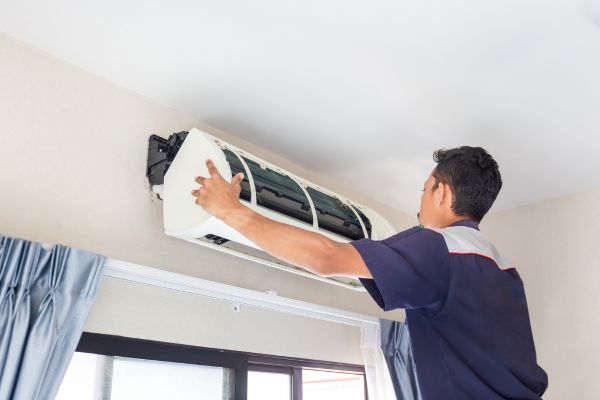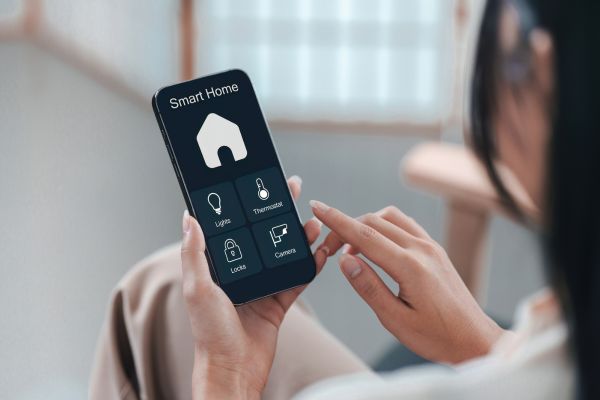When your AC is not cooling properly, it can be incredibly frustrating, especially during the peak of summer. Your air conditioner is meant to be a source of relief and comfort, but when it fails to perform, you’re left with rising indoor temperatures and growing concern. Understanding why your AC isn’t cooling properly and knowing what steps to take can save you time, money, and discomfort.
Understanding Why Your AC Is Not Cooling Properly
There are several reasons why your air conditioner might struggle to keep your home cool. Some issues are simple and can be resolved with minor adjustments, while others may require professional intervention. Recognizing the signs early can prevent small problems from becoming expensive repairs.
A common cause for poor cooling performance is restricted airflow. When air cannot circulate freely, your AC system has to work harder, leading to uneven cooling or, in some cases, no cooling at all. Dirty air filters, blocked vents, or even furniture obstructing airflow can contribute to this issue.
Another frequent culprit is low refrigerant levels. The refrigerant is crucial for absorbing heat from your indoor air and releasing it outside. If there’s a leak or if the system was not properly charged during installation, your AC will fail to cool effectively.
Checking the Thermostat Settings and Power Supply
Before assuming the worst, it’s essential to check your thermostat settings. Sometimes, the issue is as simple as incorrect programming. Make sure the thermostat is set to “cool” mode and the temperature setting is lower than the current room temperature.
It’s also wise to inspect the power supply. A tripped circuit breaker or blown fuse can cut power to your AC system. Resetting the breaker may restore operation, but if it trips again, there could be an underlying electrical problem requiring professional attention.
Dirty or Clogged Air Filters: A Hidden Obstacle
When your AC is not cooling properly, dirty air filters are often to blame. Over time, dust and debris accumulate in the filters, restricting airflow and reducing efficiency. Not only does this hinder cooling performance, but it can also put strain on your system, leading to higher energy bills and potential damage.
Replacing or cleaning your air filters regularly, as recommended by the manufacturer, can resolve this issue and improve air quality inside your home.
Outdoor Unit Problems Affect Cooling Efficiency
The outdoor unit, or condenser, plays a critical role in releasing heat absorbed from your home. If the condenser coils are dirty or obstructed by leaves, dirt, or debris, the system cannot dissipate heat effectively. This results in warmer air circulating indoors, even if the system appears to be running normally.
Regular maintenance, including cleaning the outdoor unit and ensuring clear space around it, can help restore your AC’s cooling power.
Refrigerant Leaks: A Serious Concern
Low refrigerant levels often indicate a leak, which is a serious issue that requires immediate professional repair. Signs of refrigerant leaks include hissing noises from the unit, ice buildup on the evaporator coils, and reduced cooling performance.
Since handling refrigerant requires specialized training and certification, it’s crucial to contact a licensed HVAC technician to inspect and repair the leak, recharge the system, and ensure it operates safely and efficiently.
Electrical and Mechanical Failures
When your AC is not cooling properly, internal electrical or mechanical failures could also be at fault. Faulty capacitors, worn-out motors, or malfunctioning compressors can prevent your system from functioning as intended. These components are complex and should only be repaired or replaced by professionals to avoid further damage.
Preventive Maintenance to Keep Your AC Running Smoothly
Routine preventive maintenance is the key to ensuring your air conditioner operates at peak efficiency. Scheduling professional tune-ups at least once a year allows technicians to inspect, clean, and service your system thoroughly. This proactive approach can extend the life of your AC and minimize the likelihood of unexpected breakdowns.
Simple homeowner maintenance, such as keeping air filters clean and ensuring the outdoor unit remains unobstructed, also plays a significant role in preventing cooling issues.
When to Call a Professional
While some issues, such as thermostat settings or dirty filters, can be resolved on your own, others require the expertise of a certified HVAC technician. If your AC continues to struggle with cooling despite your efforts, or if you notice strange noises, odors, or leaks, it’s time to seek professional help.
A skilled technician can diagnose the root cause of the problem, provide necessary repairs, and ensure your system is operating safely and efficiently. Attempting complex repairs without the proper knowledge can lead to further damage and costly consequences.
Staying Cool and Comfortable All Summer
Dealing with an air conditioner that isn’t cooling properly can be stressful, but understanding the potential causes and solutions helps you take informed action. From simple fixes like replacing filters to addressing serious issues like refrigerant leaks, identifying the problem early is essential.
Regular maintenance and timely professional service are your best defenses against AC failures. By staying proactive, you can enjoy consistent comfort and avoid the discomfort of a malfunctioning cooling system during the hottest days of the year.



